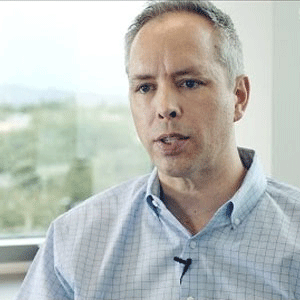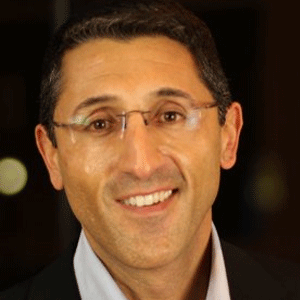THANK YOU FOR SUBSCRIBING

Minimizing Risk and Increasing Profit Margins with Flexible Technology
Manolis Kotzabasakis, CTO & EVP of Research & Development, AspenTech


Manolis Kotzabasakis, CTO & EVP of Research & Development, AspenTech
Over the past year, over supply, slowing global demand, and strong statements from the Organization of Petroleum Exporting Countries (OPEC) and others have resulted in a changed energy pricing environment. Oil, gas, energy and chemical companies around the world are feeling the impact, but refineries in the downstream market in particular are challenged to boost margins when their final product is, in many cases, selling for half the price commanded a year ago.
Optimization is no longer an option – it is a competitive necessity. If these companies can better manage their plants and supply chains amid pricing, supply and demand turbulence, they will be better positioned to weather market storms. Flexible technology will help them conquer complexity and drive efficiency with innovative software for plant design, and energy and chemicals production optimization.
Understanding Business Challenges in a Fluctuating Marketplace
With shifts in crude supplies worldwide, margins are low and companies are being forced to focus on reducing energy consumption, operating and capital costs. Typical operational challenges also involve making plants safer, achieving product quality and product yield, and improving refinery planning. At the same time, the energy industry is also challenged by a significant skills shortage, as process manufacturing engineers retire and younger employees build experience in complex oil, gas and petrochemical manufacturing and supply chain operations.
As volatility in the refining market prevails, companies can evaluate new ways to increase efficiencies, improve margins, reduce costs and become more energy-efficient through the combination of industry best practices and superior technology.
Best Practices for Conquering Complexities
In today’s market, it is vital to squeeze as much value as possible from the manufacturing operation when costs and risks are high. In order to deliver this, companies need to adopt best practice using integrated software to achieve superior cost results, including the following key disciplines:
• Commercial excellence
A number of companies are focused on the development of mega-refineries and large integrated petrochemical plants that are world-class in both size and complexity. These organizations need to work hard to establish what to produce, how or when to ramp up production, where to sell products, how to distribute it and quickly determine the return on investment.
By standardizing on optimization software, companies will improve margins, increase yields, meet customer demand and gain competitive advantage.
• Operational excellence
To survive in this fast-changing environment, companies need to be leaner, more efficient and able to adapt quickly to customer needs. To be exemplary in terms of operational excellence, companies are implementing flexible and integrated software technology to bridge the gap between strategic planning and scheduling. Using integrated software to avoid silo practices will help empower engineers to make better decisions when they come to address feedstock planning, operational efficiency, energy optimization and safety analysis.
“Overall, technology should be seen as a competitive differentiator and not simply a cost of doing business”
• CAPEX efficiency
Together with better analysis, the ability to easily evaluate capital investment projects faster early in design process along with better analysis helps engineers understand the economic implications of decisions. Crucially, the project scalability, improved workflow and the ability to achieve better predictability and accuracy during FEED reduces the total project life-cycle. With better cost trade-offs in making incremental capital investment decisions, companies will become more profitable.
• Compliance and sustainability
Efficient design of facilities is vital to achieve outstanding environmental, health & safety (E&HS) performance and reduce operational risk and prevent injury to staff. Excellence in process safety starts by ensuring facilities are designed, operated and maintained in a way that minimizes the potential for process safety incidents. Risk is also managed by quickly identifying hazards, assessing consequences and implementing prevention and mitigation measures.
• Skills development
Today, many companies face a shortage of skilled and experienced indigenous chemical engineers. With integrated software, new and occasional users become proficient faster and experienced users can do more.
Implementing Flexible Technology to Achieve Success
By finding a way to implement solutions to achieve a combination of these best practices, refineries will have the tools to respond effectively to the commercial and operational issues affecting their business. For example, the use of integrated automated software delivers accurate real-time information and significantly helps operational decision-making be more efficient with fewer resources and time to complete tasks. Sustainability is then enhanced through more efficient use of energy and less raw materials wastage, which overall improves quality.
Many refineries have already adopted these types of flexible technology solutions for energy, chemicals, engineering and construction and other industries that manufacture products from a chemical process. With integrated software solutions, energy and chemical companies can optimize process designs for energy use, capital and operating costs and product yield through the use of activated energy, economics and equipment design during the modelling process, as well as accurately model and optimize the purchase, flow, storage and conversion of materials from feedstock supply to product shipment. Being able to make the plant design, manufacturing operations and supply chain work more efficiently is a significant competitive advantage in a world of changed pricing dynamics. Additionally, some of the solutions available today allow users to become proficient faster, bringing the power of optimization to more people in engineering, operations, planning and scheduling across the enterprise, allowing companies to save time and resources on training employees.
Overall, technology should be seen as a competitive differentiator and not simply a cost of doing business. With an integrated, flexible software solution, oil, gas and chemicals manufacturers can implement best practices for optimizing their engineering, manufacturing and supply chain operations, increasing capacity, reducing costs, achieving energy efficiency and becoming more profitable. As economic storm clouds continue to threaten, companies should be utilizing innovative and flexible technology to significantly improve profit margins to remain competitive. With these solutions, organizations can minimize risk against unplanned events, as they will have the tools to adjust day-to-day actives to find the most effective and efficient way to run the business. Additionally, the avoidance of silo practices with integrated software will help empower indigenous engineers to be better decision-makers for addressing planning, operational efficiency, energy optimization and safety analysis.
See This: Energy Tech ReviewWeekly Brief
I agree We use cookies on this website to enhance your user experience. By clicking any link on this page you are giving your consent for us to set cookies. More info
Read Also
Artificial Intelligence - Myths And Truths
Sustainable Future through Innovative Technology Solutions
The Future Relies on Augmented AI
Digitalization with the use of digital technologies/Improving business through digital technologies
How Marco's Pizza Leaned On Technology To Succeed Amid The Pandemic By Quickly Pivoting To Contact-Free Delivery And Curbside Carryout
Bunnings Diy Digital Transformation
For a Smarter City: Trust the Data, Ignore the Hype
Smart Community Innovation for the Post Pandemic




















